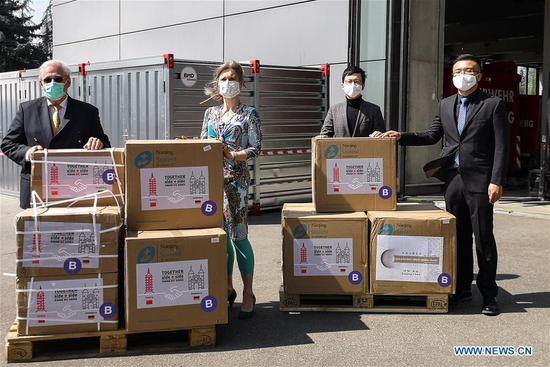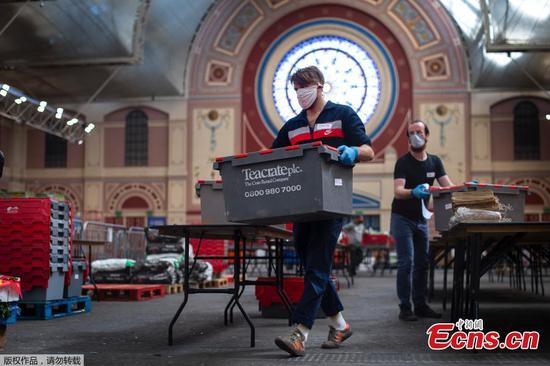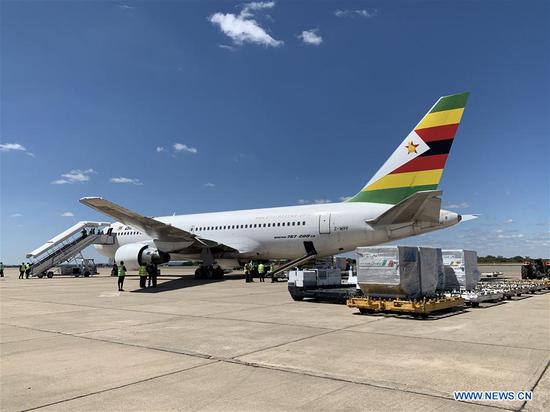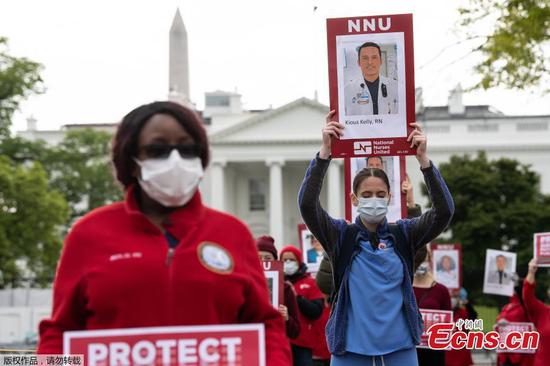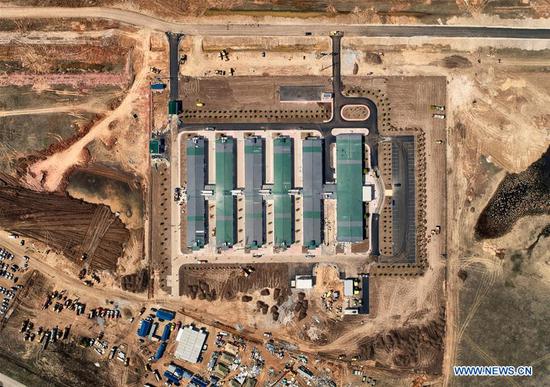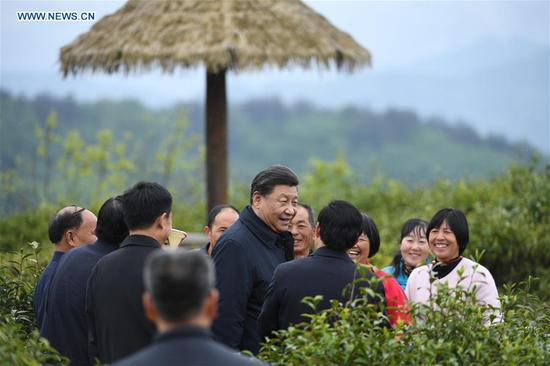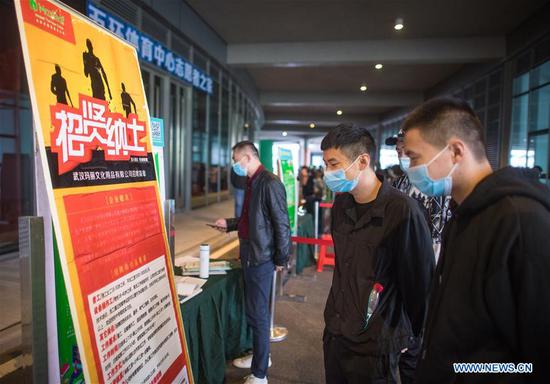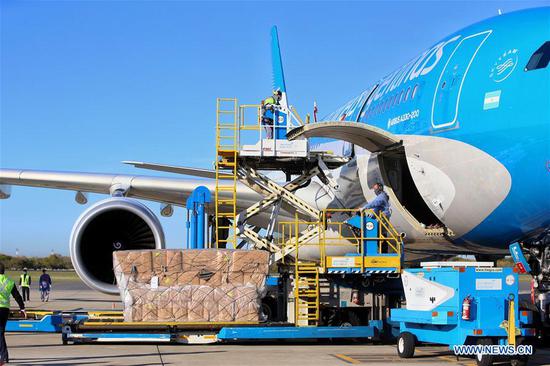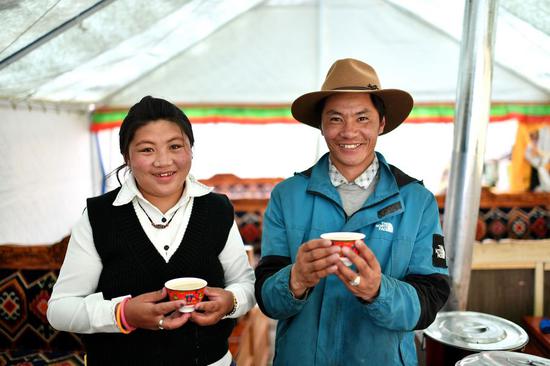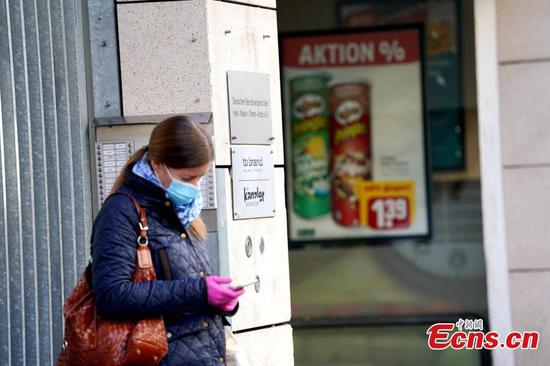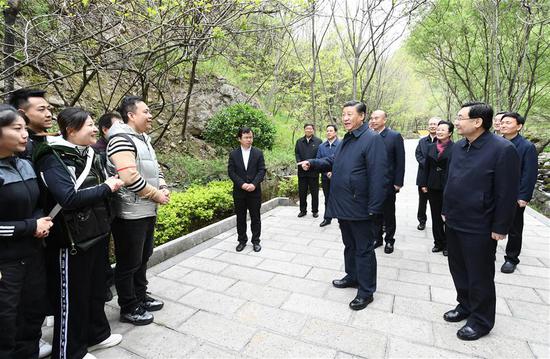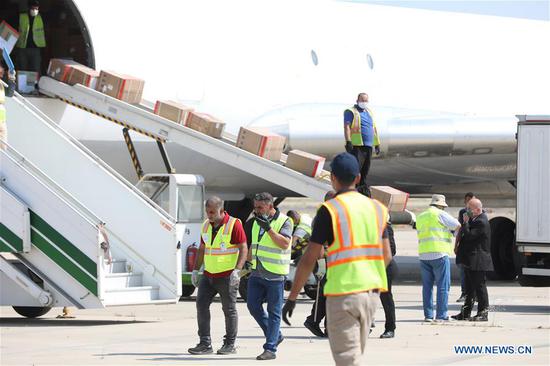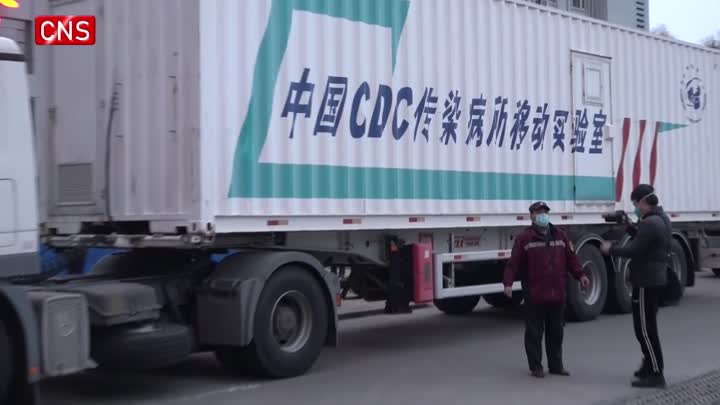
File photo: UN Secretary-General Antonio Guterres calls on greater resources for the International Monetary Fund. (Photo/Xinhua)
United Nations leaders called on Thursday for a large-scale and comprehensive response to the devastating socioeconomic consequences of the COVID-19 pandemic.
"The COVID-19 pandemic is not only a health crisis but a human crisis, a jobs crisis, a humanitarian crisis and a development crisis," said Secretary-General Antonio Guterres at the virtual ECOSOC (United Nations Economic and Social Council) forum "Financing Sustainable Development in the Context of COVID-19" on Thursday.
"We must use all the fiscal and monetary measures at our disposal," he said, calling on greater resources for the International Monetary Fund, including through the issuance of new Special Drawing Rights, and enhanced support for the World Bank Group and other International Financial Institutions and bilateral mechanisms.
Guterres said a global stimulus package of unprecedented proportions will also be needed to restore sustainable growth and safeguard people's livelihoods.
"Since the beginning of the pandemic, I have strongly advocated for a response package that is a double-digit percentage of global GDP," he said.
"That means fiscal and monetary measures including providing resources directly to workers and households, targeting both formal and informal sectors; scaling up social protection and access to health care; and helping businesses prevent bankruptcies and massive job losses," he added.
Guterres said most developed countries can do this with their own resources and indeed, several are doing it, but developing countries need massive and urgent support.
"Now is the time to stand by our commitment to leave no one behind," he said.
As COVID-19 is significantly amplifying existing debt risks, Guterres said the time-bound G20 initiative to suspend debt service payments for the poorest countries is a critical first step.
He called on the moratorium to be extended to all developing countries that request forbearance, including middle-income countries that lose access to financial markets.
Beyond an initial debt moratorium, targeted debt relief will be needed, he said, adding that it should be followed by efforts to strengthen debt sustainability, including debt swaps and a mechanism to address sovereign debt restructuring.
He stressed the importance of addressing structural issues in the international debt architecture, to prevent defaults leading to prolonged financial and economic crises.
ECOSOC President Mona Juul echoed Gutteres' view on debt relief.
"Now as countries race to meet the demands of the crisis response, a viable solution on debt is of vital importance," Juul said.
Juul said she welcomes the many options and solutions to the debt issue that have been proposed, including the G20 Finance Ministers' Action Plan that calls for a debt moratorium for International Development Association (IDA) countries, the call by the heads of IMF and the World Bank, and actions by the Paris Club.
"I also welcome the call by the prime minister of Pakistan for a global initiative for debt relief to promote a comprehensive solution to the debt issue and financing for sustainable development and all similar initiatives and proposals," she said.
"I am also encouraged by the steps taken over the past weeks calling for other measures aimed at stabilizing the global economy. I welcome the G7 Leaders' statement on healthcare and economic recovery, as well as other important initiatives," she added.
Against the current backdrop, Juul said "it is clear that all sources of finance must be mobilized to enable countries to address the pandemic and its social and economic consequences".
"The integrity of governance is critical for resource mobilization, public financial management, debt sustainability and effective service delivery — during and after the pandemic," she said.
Tijjani Muhammad Bande, president of the 74th Session of the United Nations General Assembly, agreed with Juul on the view of resource mobilization.
Bande said the fault lines of rising debt risks and deepening inequalities are being amplified by COVID-19.
"Mobilizing sufficient resources will be essential in order to effectively combat COVID-19," he said.
While no country will be spared from the economic impact of this crisis, Bande said developing countries will be "hit the hardest".
"The most vulnerable countries face financial constraints (and) lack the fiscal space and capacity to cope with the crisis," he said.
"Moreover, developing countries will be most affected by the global economic repercussions of this crisis, due in part to a slump in commodity prices and a reversal of financing flows," he added.
"To build resilience for the poorest and most vulnerable people, we must ensure sufficient financing," Bande said.
Bande called on global responses to include effective fiscal and social measures and preventing mass unemployment by shoring up and bolstering businesses.
He also called on promoting fair trade and innovative financing and acting urgently to prevent a potentially devastating debt crisis.
"Rising debt levels severely limit a country's ability to provide essential public services such as healthcare and social protection. We must move swiftly on debt and concessional finance to support the most vulnerable people we serve. We must also advance steps to provide debt relief for countries," he appealed.
In order to minimize the real risks of rising debt levels, Bande called on political will and steadfast international cooperation.











